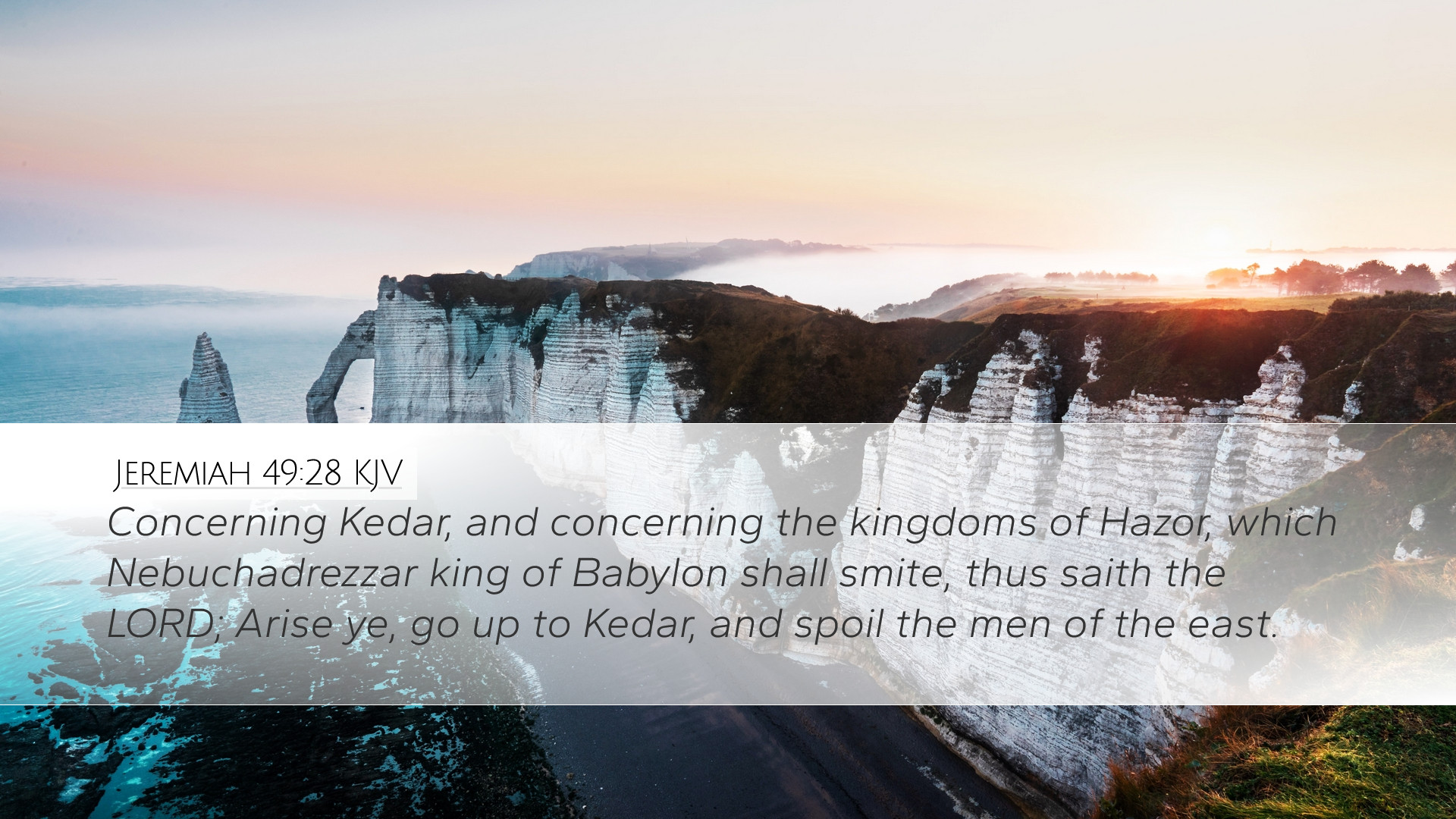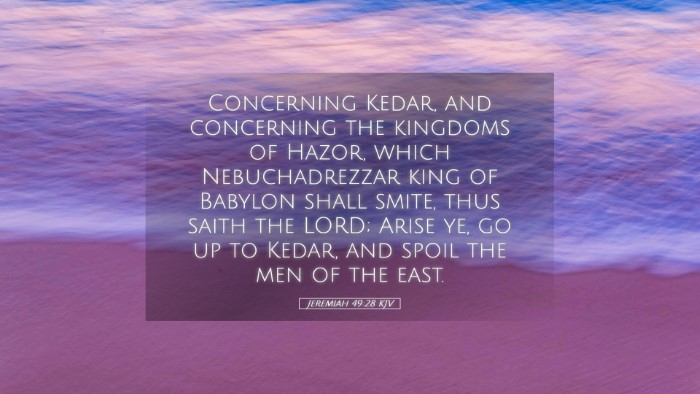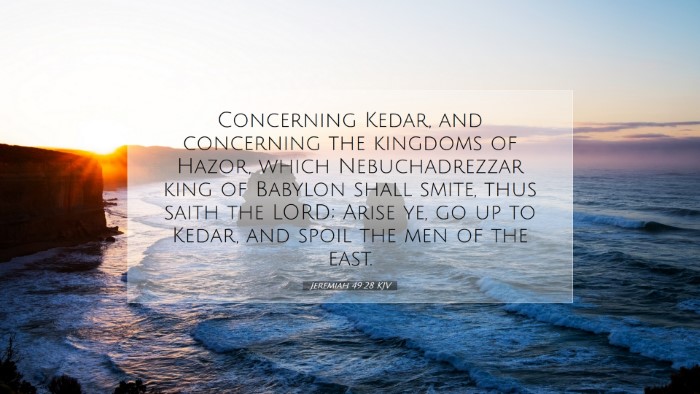Bible Commentary on Jeremiah 49:28
Jeremiah 49:28 states:
"Concerning Kedar, and concerning the kingdoms of Hazor, which Nebuchadrezzar king of Babylon shall smite, thus saith the LORD; Arise ye, go up unto Kedar, and spoil the men of the east."
Introduction
The verse falls within a series of prophecies against foreign nations, illustrating God's sovereign authority over all the earth, including the nations surrounding Israel. It specifically addresses Kedar, an important tribe of nomadic Arabs known for their wealth and prowess in archery, located in the northern Arabian peninsula. This commentary synthesizes insights from notable public domain commentaries to explore the theological, historical, and practical implications of this scripture.
The Context of Jeremiah 49
According to Matthew Henry, chapters 46 to 51 of Jeremiah are focused largely on God’s judgment against the nations. This particular prophecy is directed to Kedar and Hazor, indicating a significant military campaign by Nebuchadnezzar. The mention of Jerusalem’s ultimate downfall emphasizes the interconnectedness of these nations’ fates with that of God’s chosen people.
God's Sovereignty Over Nations
Albert Barnes comments on the broader implications of this verse, illustrating that such prophecies serve as reminders of God's overarching authority. The nations, though seemingly powerful in their own right, are subject to God’s will. Nebuchadnezzar’s campaigns, though orchestrated by human means, are ultimately instruments of divine purpose.
The Role of Kedar and Hazor
Adam Clarke provides additional context by describing Kedar as a place of wealth and civilization due to its commerce and the culture of its people. The militaristic call to "spoil the men of the east" emphasizes a divine directive for destruction and disruption of its wealth, akin to the Biblical principle that pride goes before destruction (Proverbs 16:18).
Theological Insights
This verse embodies several theological themes that are salient for pastors and theologians:
- Dominion of God: God’s sovereignty extends beyond Israel, reminding believers that every nation is accountable to Him.
- Judgment: This prophecy exemplifies divine judgment against idolatry, moral decay, and injustice prevalent within Kedar and Hazor.
- Hope and Restoration: While the prophecy forecasts judgment, underlying the text is a promise of ultimate restoration for God's people, evident in the larger narrative of Jeremiah.
Practical Applications
For pastors and students of Scripture, this passage offers several practical takeaways:
- Awareness of God’s judgment: Modern believers are encouraged to remain vigilant against the influence of materialism and pride, which were rampant in Kedar.
- The importance of humility: Just as Kedar's wealth was no safeguard against God’s judgment, today’s church must remain humble and recognize their dependence on God’s grace.
- Engagement in global missions: Understanding that God’s plans encompass all nations encourages believers to engage in mission work, spreading the gospel to all corners of the earth.
Concluding Thoughts
Jeremiah 49:28 serves as a profound reminder of God's majesty and authority over nations. As noted by Matthew Henry, God's purposes cannot be thwarted, and His word will accomplish what it aims to do (Isaiah 55:11). For believers, especially pastors and scholars, this verse offers rich theological depth and practical challenges to engage with not only the historical context but also its implications for modern faith practice.
References from Public Domain Commentaries
1. Matthew Henry’s Commentary on the Whole Bible
2. Albert Barnes' Notes on the Bible
3. Adam Clarke’s Commentary on the Bible


